Refugees at Sea: Words of a Rescuer
CONTENT WARNING: Images and descriptions of distressing scenes
Brendan is a British rescuer with Sea Watch. Below, he shares pictures along with a testimony of his experience of rescuing a group of refugees in the Mediterranean Sea.
27th April 2022
I don’t know how I’m going to describe this. How do I start? Can I even finish?
I’ve been on a search and rescue mission for the last few weeks with Sea-Watch, in the central Mediterranean Sea, just north or Libya. I drive one of the two speedboats.
I’ll talk about the rest of the mission another time I guess, but I need to talk about boat four of our rescue mission. The sinking boat. You can see the pictures and I’ll describe it as best I can, but I can’t paint for you like it was. I just can’t. I can not describe the screams that we heard, the fear that we witnessed, the exhaustion of those that we rescued, the shivering, the smell, the feelings of loss and guilt and of the absolute horror of it all. I’ll try I guess. Just start at the beginning.
We’d not long got back to the ship from rescuing boat three. Phil, head of mission told us that there’d been a mayday call. A plane had spotted a rubber boat which was sinking, with over fifty people in the water. It was over ten miles away. The briefing was short. What equipment to take, the location for the chart plotter, good luck, go. It was that kind of thing. Just get there. Do what you’ve trained so hard for. Go!
Ten miles on the speedboat takes a while. I swear that it just doesn’t go any faster than I took it. 37kn pretty much all the way, scanning the horizon. Looking. All the while knowing that people were drowning. I knew we wouldn’t be able to save them all, and we didn’t. God damn this is hard to write.
After a while we could see small dots which got bigger. Boats first, then people. We could see the Libyan Coast Guard had got there first. There were still loads of people in the water screaming for rescue, splashing desperately, most unable to swim, some with little rubber inner tubes round them, still kicking hard to keep their heads above water, the fucking panicked manic desperate final efforts to survive. They’d been in the water for so long already. These were their final moments.
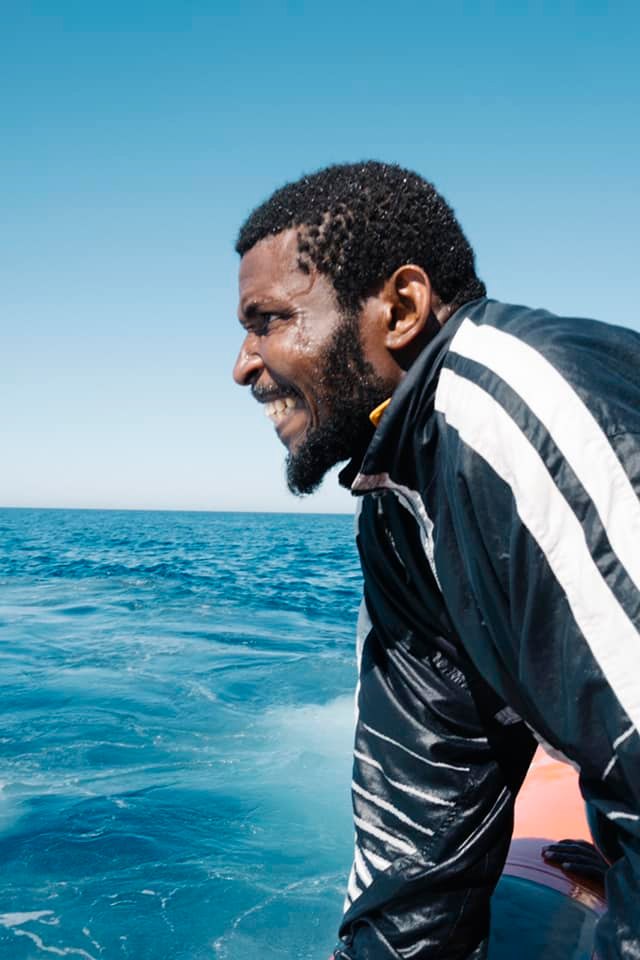
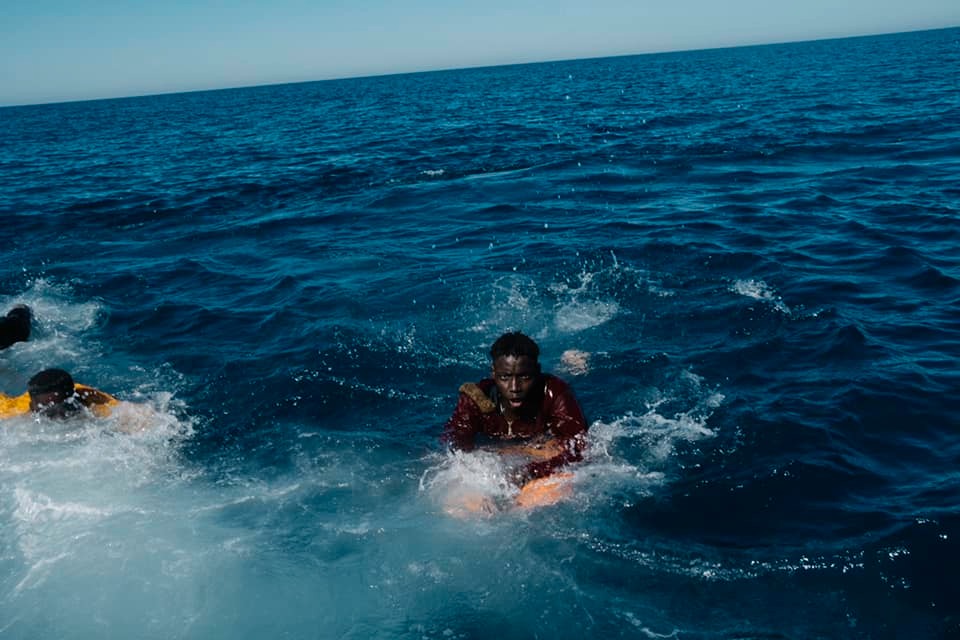
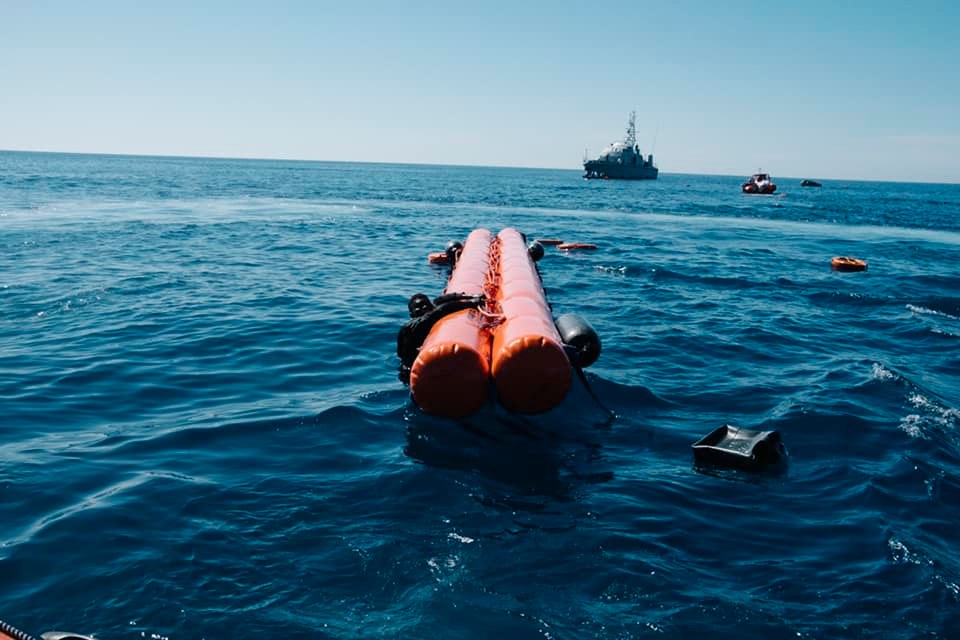
We followed our training, just about as quickly as it would be possible to do it. I slowed down a little for a safe approach, hearing the distress call on our arrival. We got the first two people struggling over the same tyre tube, then we started hauling them in. Another to our side swimming towards us, just so frantic as he got to the boat, then reach over and pull him in too.
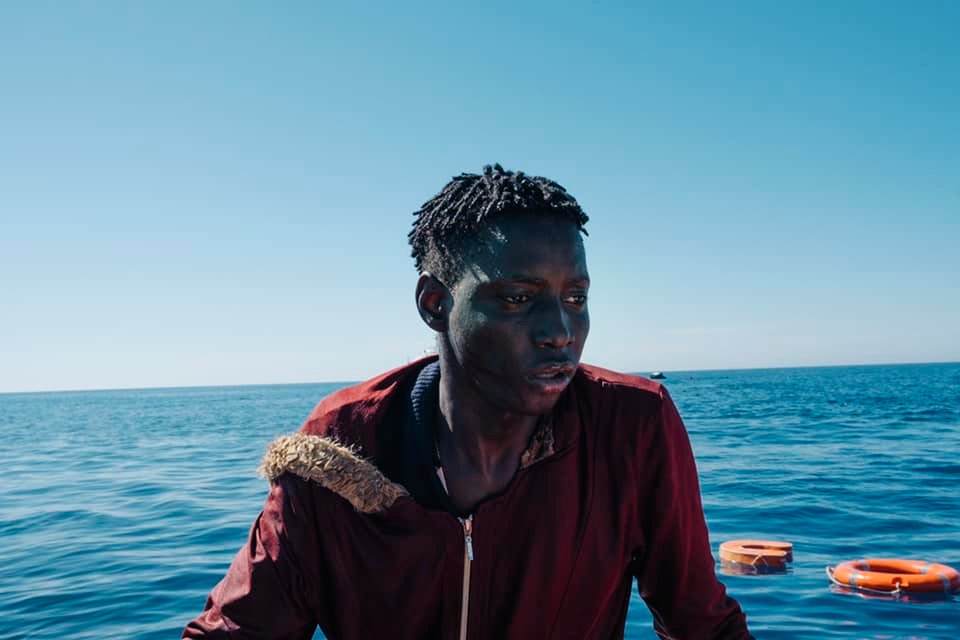
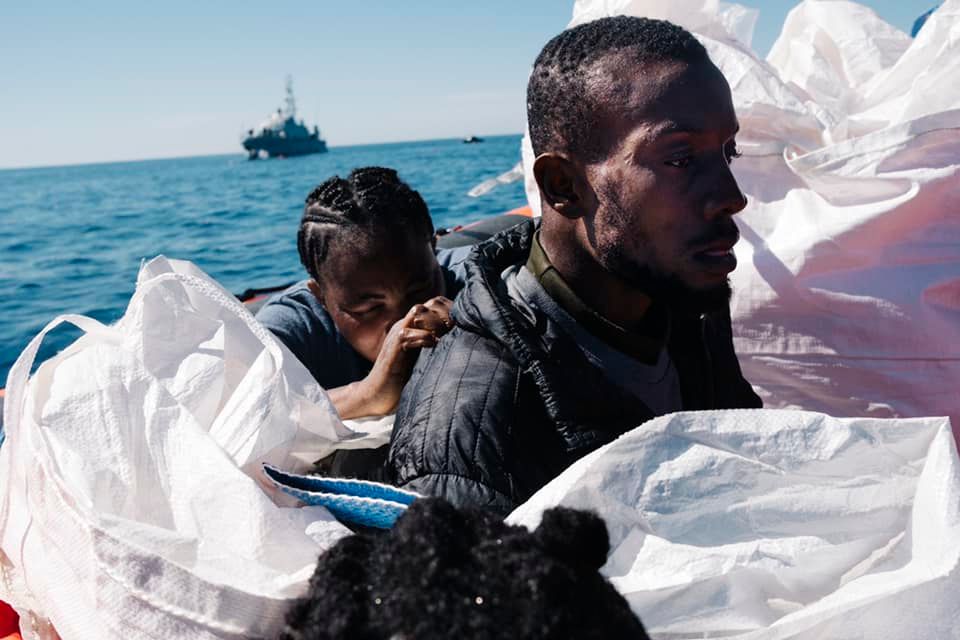
The first ones in the boat lay on the floor exhausted, still screaming, we repositioned. In front of us, there were loads of people. I heard a female voice shouting “please save us”. One guy on the boat got his breath back a little. He was shaking violently with hypothermia. Through trembling lips he kept saying “No Libya, No Libya”. He was so scared to be taken back he just kept saying it over and over.
I can’t piece it all together, but before long we had six or seven in our boat. They were in shit state. Hypothermic, with foam running from their mouths and noses. Some of them started to help pull in more people. It really wasn’t the prettiest rescue, just haul them in, sit them down, no time for first aid or rescue blankets, just reposition and get the next one, and the next one and the next one.
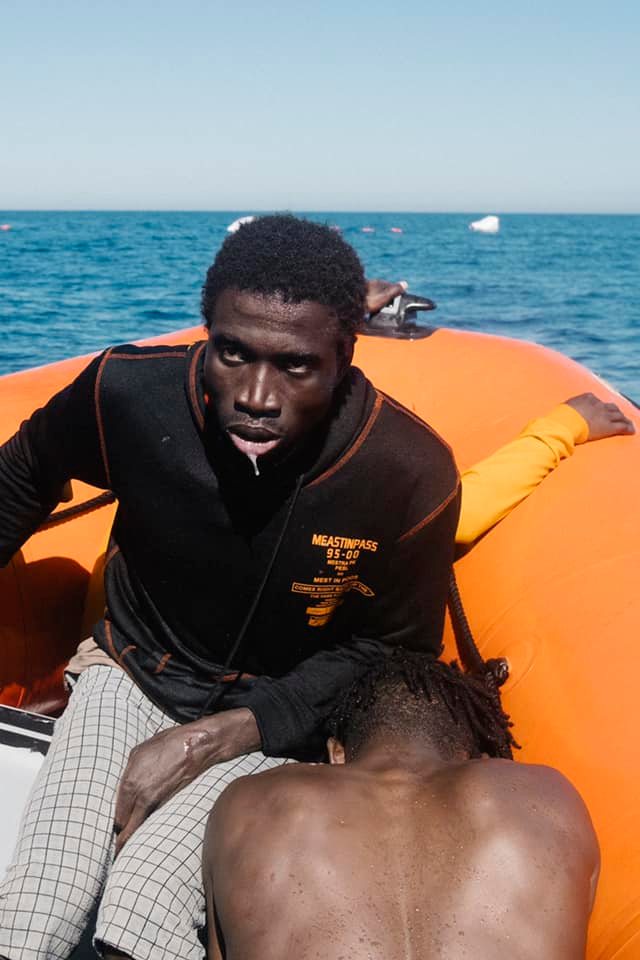
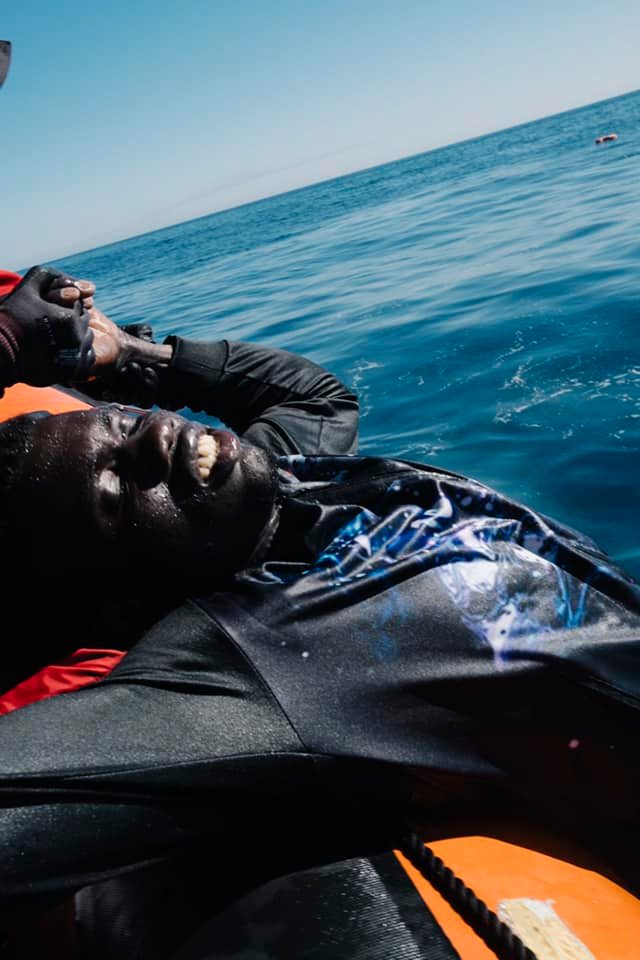
The Libyans were on scene and had deployed their small RHIB. Some of the people jumped from the Libyans RHIB to swim towards us. I saw a woman (22 years old) on the Libyan Coast Guard ship as she fought off the guard and then jumped in the water. She swam toward us. I found out later that she didn’t know how to swim but chose this over being returned to Libya. They were all just so terrified.
We looked under the deflated wreck of the boat that had sunk, as we couldn’t see any more people trying to swim, we started to search for any signs of life, all with the chattering of teeth all around us, the coughing, the sobbing, the praying. With incredibly traumatised people on our boat we just continued to search.
It was very strange and I’ve never seen it before (apparently it has happened before), but the Libyan Coast Guard then transferred the people to us. First from their little RHIB and then eventually from their big boat. We did a scan around and could see nobody. Then, I guess the person might have been obscured by the Libyans, one of the people on the other speedboat spotted something. Some splashing and then a hand reaching out of the water. Both speedboats went as fast as possible, but it was too late. One of the guys on the boat I was driving, saw something sinking under the water, but it was impossible to get there. The person drowned right in front of us, froth and bubbles rose to the surface. Gone.
One boy told me he’d lost his brother. We searched the whole area. There was nobody else to save. I asked one guy how many people were on the boat that had left Libya. He said 55. We did a head count. 38. So, 17 people had drowned. Most had drowned before we got there, some right under our noses. Right at that moment though, the 38 people were our priority. Some were near death from severe hypothermia, having been in the water for half an hour or more. They were sat and laid shivering on our boat. Some couldn’t even sit up, some drifting in and out of consciousness, some shaking violently, some not at all. Some had clothes all on, some had kicked their clothes off in their desperate struggle to survive. It was completely fucked up. We put rescue blankets on them and took them back to the ship.
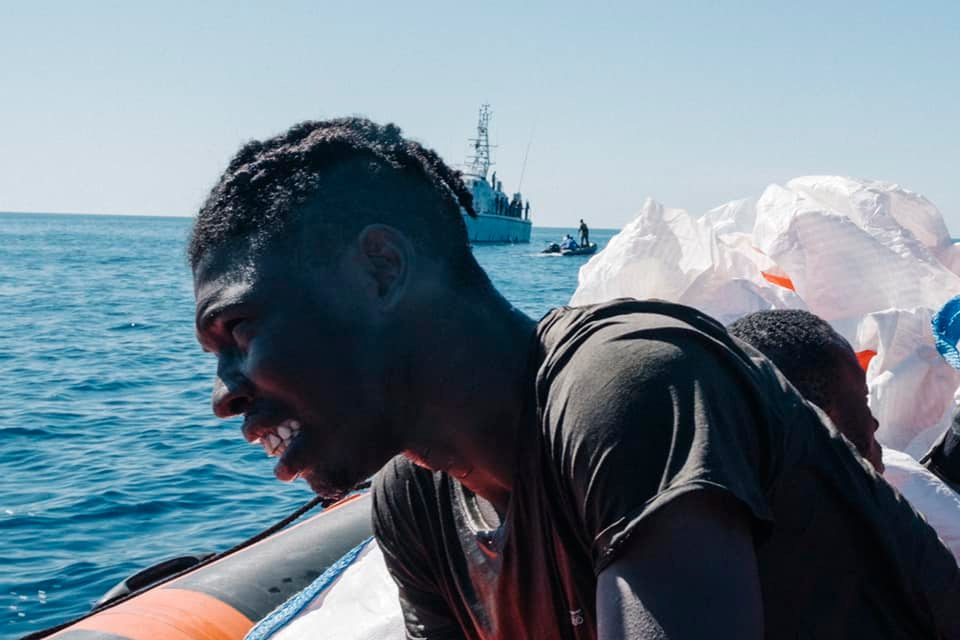
Two of the women were heavily pregnant. One guy was just in and out. We’d rescued them from the sea but that was just the start. Getting them up and onto our ship was difficult. And then the deck team took them. They were showered with fresh water as some of them had terrible burns caused by the fuel from their boat mixed with salt water. Then the hospital cases. The medical team worked for days with hardly any sleep. God knows how they did it. All of the crew mucked in, each of us taking our turn to cook, clean and help in all kinds of ways.
I can’t really weigh up exactly what happened over the next days with the people, but there were ten medevacs. Some of them had developed signs of secondary drowning. They were all extremely exhausted but more than that, their bodies ached for days from the excursion. The mental trauma. Everything!Eventually we got them to Sicily and the rest of the people were disembarked. Now they’ll be in quarantine and then they’ll go through the asylum process.
Later we learned that among the dead was a 16 year old boy, that some of the dead were relatives of some of the survivors. They all have names, loved ones. I just can’t describe how precious each of them was. Fuck Europe for allowing this to happen.
That night I was chatting to one of the survivors, a 17 year old Liberian boy. He and his brother, Samuel who was 19 had left home three years earlier. Samuel was one of those who had drowned. I told him I was sorry. That we tried. I’m sorry. Then he asked me “How do I tell my mother that my brother is dead?” “I don’t know my friend, but when it’s time you will find the words”
I want to live in a better world than this. Nobody deserves to drown at sea. What is wrong with us for allowing this to happen? We need a change. Tens of thousands of people have drowned in this sea in recent years. It is no accident. It is a policy decision. Our governments have withdrawn all of their rescue ships. They’re allowing human beings to drown in our moat in order to create a deterrent. A deterrent of death by drowning. And for as long as we accept our governments position on this, and for as long as we allow our media to dehumanise and rationalise, and for as long as we let our friends speak of this as being acceptable, then boys like Samuel will drown over and over again. And last thing. I’ve said it before and I will say it over and over again: we would not allow this to happen if the people drowning were white!
